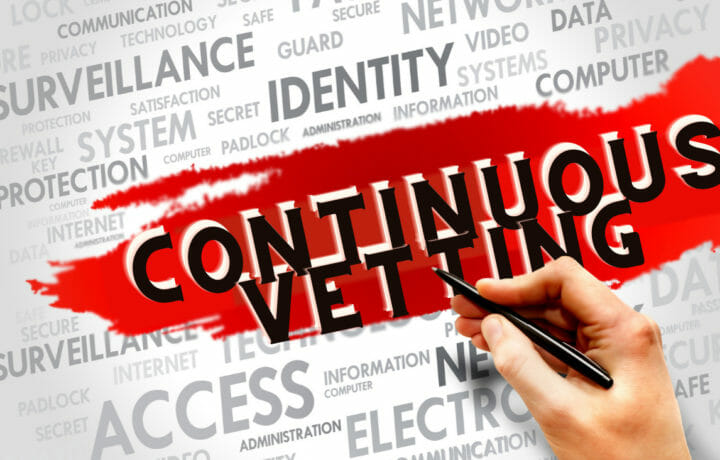The internet rumor mill is alive and well with the Department of Defense’s announcement that all DoD clearance holders are now under the Defense Counterintelligence and Security Agency (DCSA) Continuous Vetting (CV) program. One Reddit thread claims “Clearance holders will now have their social media continuously monitored -One wrong post (depending upon the administration in power) and you can loose your job, health insurance, retirement, ect. [sic].”
The reality is the DoD announcement specifically noted the program is currently pulling in high value data sets like criminal and financial databases, and is currently limited to three specific data sources. The next iteration of Trusted Workforce, 1.5, will pull in additional information. But DCSA has noted social media is not a part of the 1.25 solution, and policymakers will still likely be weighing in on how much social media will be used in the government’s comprehensive Continuous Evaluation (CE) policy.
DCSA has noted it has run pilot programs into social media monitoring solutions – likely many of the same programs many employers implement today as a part of their own employee and candidate vetting programs, and pulling from public facing profiles and indexed information on the web.
Security Executive Agent Directive (SEAD) 6 went into affect in January of 2018 and allows for social media monitoring as a part of the personnel vetting process. But the Office of the Director of National Intelligence (ODNI) has always emphasized that there is more work to be done – including things like DCSA’s pilot programs – before establishing the effectiveness of social media. The issue isn’t just the technical aspect, but also ensuring social media data could be efficiently applied against the current adjudicative guidelines and Federal Investigative Standards. Will social media checks uncover significant adverse information and does the time necessary to vet and establish authenticity make sense?
Just because social media isn’t a part of today’s continuous vetting program doesn’t mean clearance holders should disregard the need to be safe networking online. LinkedIn remains the favorite technological development of foreign intelligence services since the wiretap. You should assume every single social media post you make in a public forum is being scrubbed by someone – friend and foe. But what you don’t need to do is go out and assume anything is being used in your background investigation – because it’s likely not. The security clearance process is complicated enough without adding elements that aren’t already there.



